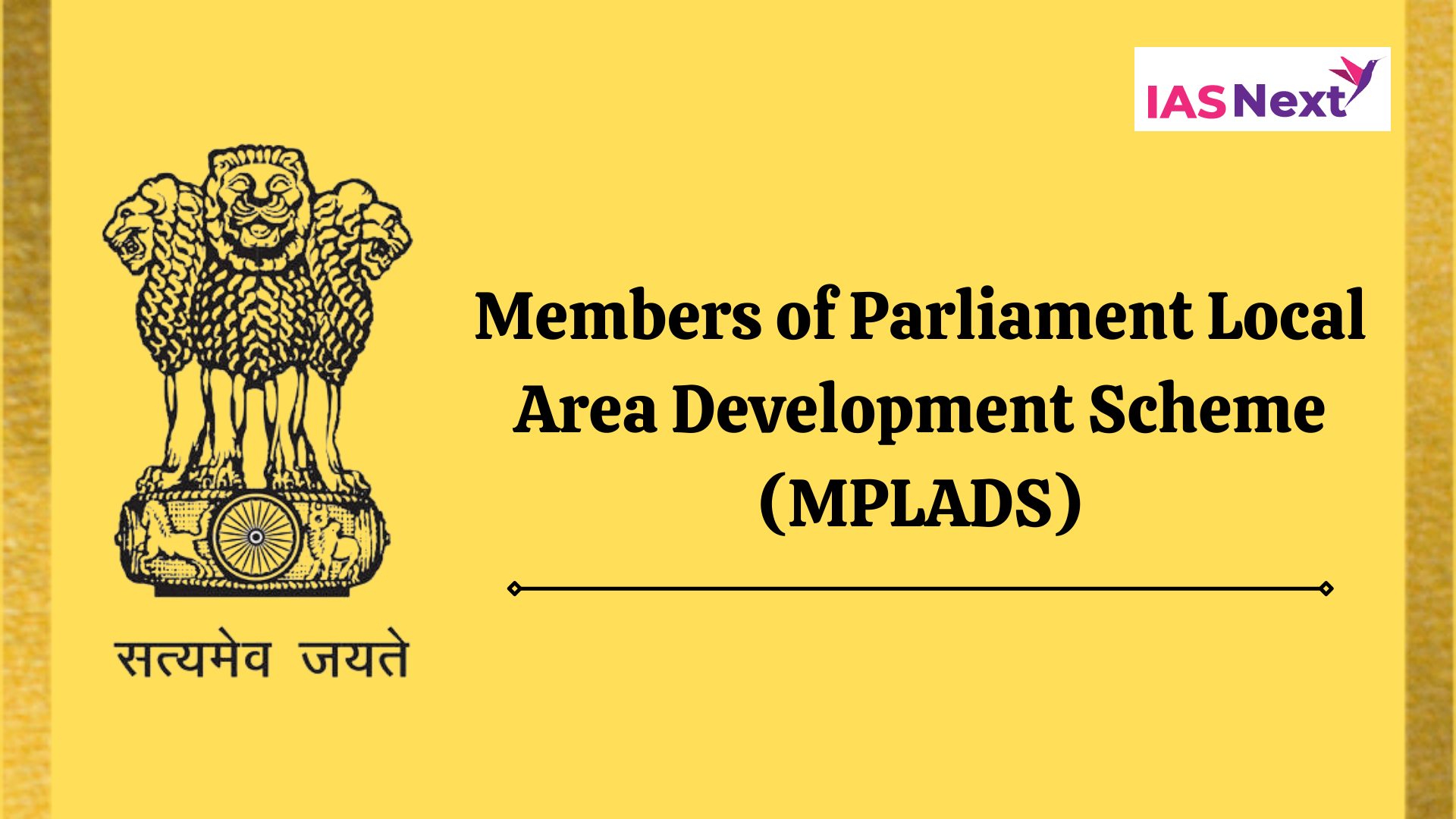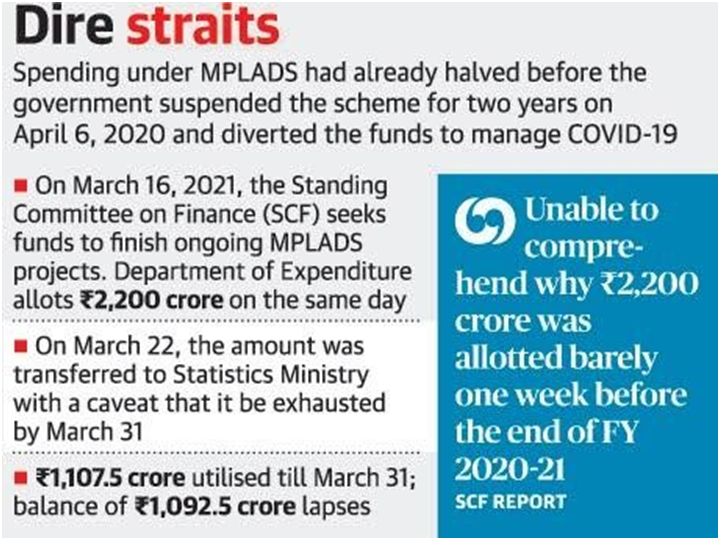CURRENT AFFAIRS
Get the most updated and recent current affair content on Padhaikaro.com
What is MPLAD Scheme?
- IAS NEXT, Lucknow
- 13, Apr 2022

Reference News:-
With the Covid-19 pandemic leading to the suspension of the release of funds under MPLADS and impacting projects, the Parliamentary Committee on Estimates has asked the government to release Rs five crore meant for 2023-24 in this fiscal itself so as to complete unfinished projects.
Background:
Though the Member of Parliament Local Area Development (MPLAD) scheme was suspended for two years (2020-21 and 2021-22), it was restored for the remaining part of 2021-22 with the release of Rs 2 crore for each MP in one installment.
Need for:
There were certain sanctioned projects which have been completed or are at the stage of completion but due to the non-release of previous instalments, projects are “unfortunately” being “abandoned mid-way”.
- To overcome this, the government should make appropriate arrangements to release pending installments of previous years in order to clear the committed liabilities under MPLAD scheme and to help people derive benefits from erstwhile dead/abandoned projects under MPLADS.
About MPLAD scheme:
- Launched in December 1993.
- Seeks to provide a mechanism for the Members of Parliament to recommend works of developmental nature for creation of durable community assets and for the provision of basic facilities including community infrastructure, based on locally felt needs.
- The MPLADS is a Plan Scheme fully funded by the Government of India.
- The annual MPLADS fund entitlement per MP constituency is Rs. 5 crores.
Special focus:
- MPs are to recommend every year, works costing at least 15 percent of the MPLADS entitlement for the year for areas inhabited by Scheduled Caste population and 7.5 percent for areas inhabited by S.T. population.
Release of Funds:
- Funds are released in the form of grants-in-aid directly to the district authorities.
- The funds released under the scheme are non-lapsable.
- The liability of funds not released in a particular year is carried forward to the subsequent years, subject to eligibility.
- The MPs have a recommendatory role under the scheme.
- The district authority is empowered to examine the eligibility of works, sanction funds, select the implementing agencies, prioritize works, supervise overall execution, and monitor the scheme at the ground level.
- At least 10% of the projects under implementation in the district are to be inspected every year by the district authority.
Recommendat00ion of works:
- The Lok Sabha Members can recommend works in their respective constituencies.
- The elected members of the Rajya Sabha can recommend works anywhere in the state from which they are elected.
- Nominated members of the Lok Sabha and Rajya Sabha may select works for implementation anywhere in the country.
